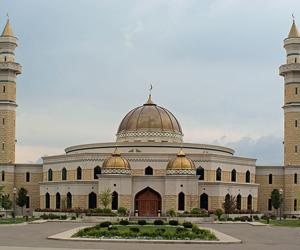Researchers ask: Does recognition have negative consequences?
Research news
Recognition of Australia's indigenous and multicultural communities has long been an area of public and political discussion but a group of Alfred Deakin Institute for Citizenship and Globalisation researchers are asking does recognition have negative consequences?
Dr Sam Balaton-Chrimes one of the co-convenors of the Institute’s Diversity and Identity research stream said a workshop to be held in February 2016 would look at the arguments and research Against Recognition.
“It is a little unusual but we want the workshop to look at the ways individuals or groups are turning away from recognition as a goal in itself,” she explained.
“The discussion surrounding recognition occurs across a range of Australian and international contexts and informs political projects of reconciliation, multiculturalism and development.
“Some examples of this can be seen in discussions surrounding the granting of land rights, constitutional recognition, or the granting of social and political entitlements to particular groups".
Dr Balaton-Chrimes said there are concerns that some forms of recognition are not necessarily fostering more equitable intercultural relationships, but are instead entrenching existing power dynamics.
“Discussion around recognition tends to be framed unequally, it can be a particularly asymmetrical relationship in that some people have to perform in certain ways to be recognised,” she said.
“Our research will be asking questions such as, ‘Who is giving who the recognition? and who is receiving it? what are the power relationships involved in these processes?”
Dr Balaton-Chrimes said the researchers recognised the positive intentions behind many acts of recognition but the workshop would open up an avenue for a discussion about the arguments against certain forms of recognition.
“It ultimately has applications in the way recognition works,” she said.
Dr Balaton-Chrimes said the workshop was particularly interested in the experiences of indigenous peoples, cultural, racial or ethnic minorities, asylum seekers or migrants, or those whose way of life rejects global norms, such as capitalism, industrialisation or neoliberalism.
“It may be that certain groups don’t want to recognised – perhaps they don’t need it, or it causes problems for them,” she said.
“For example, if Aboriginal people are recognised in the Constitution, does that affect their underlying claim to sovereignty?
“Similarly in the multicultural context it is the ‘good’ or ‘moderate’ Muslim who integrates into the dominant culture who is often recognised as a valued citizen. “Visible difference can cast Muslims as suspect particularly when Islamic beliefs and practices are perceived as incompatible with mainstream values. “Some researchers are also looking at dynamics of recognition in international development.
“For example, major international development agencies want to engage with local communities and recognise their right to determine their own development objectives, but sometimes end up causing more harm than good. This also involves a dynamic of recognition that can be problematic.”
Dr Balaton-Chrimes said the workshop would be informed by other events involving researchers from a range of disciplines at Deakin focussing on, among other things, different aspects of recognition.
“The Muslim Question" - a symposium on December 14 will look at race, citizenship and belonging after Cronulla while a Rethinking Enlightenment conference on December 16 looks at the enlightenment and its impact on the way we look at intercultural relationships.
The Islamic Centre of America, Dearborn, Michigan, USA – the largest mosque in America. Dearborn has the largest proportion of Arab Americans in the US, many of whom settled in Dearborn in the early 20th century.
Share this story

Key Fact
The Islamic Centre of America, Dearborn, Michigan, USA
